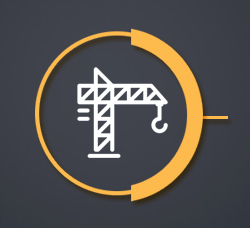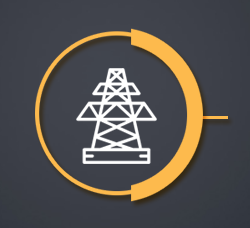Construction Industry
The building engineering market encompasses a range of disciplines including civil, structural, mechanical, electrical, and environmental engineering, among others. The industry focuses on the design, construction, and maintenance of buildings and infrastructure. Sunstream offers a range of services in the BIM engineering discipline.
Like any field, it faces several challenges:
Integrating New Technologies: As buildings become smarter and more connected, integrating new technologies while ensuring interoperability and security is a challenge.
Regulatory Compliance: Meeting local building codes and regulations, which can vary significantly by region and are subject to change.
Energy Efficiency: Designing systems that minimize energy use and reduce the carbon footprint of a building, particularly under increasing environmental and governmental pressure.
Cost Management: Balancing the initial investment in high-quality systems with the long-term savings and operational costs.
Maintenance and Upgradability: Ensuring that systems are not only durable and reliable but also easy to upgrade as technology advances and needs change.
Skilled Labor Shortage: Many regions experience a shortage of skilled labor in the building engineering market. This can lead to delays in project completion and increases in labor costs. Attracting and retaining skilled workers, and ensuring they are well-trained, is a constant challenge.
Building engineering services encompass all the systems integrated into buildings to make them comfortable, functional, efficient, and safe. These services are crucial to the operation of modern buildings and include the design, installation, and maintenance of mechanical, electrical, and plumbing (MEP) systems. Here’s a more detailed look at each aspect:
Mechanical Services
Mechanical engineering services focus on heating, ventilation, and air conditioning (HVAC) systems, which are crucial for maintaining indoor air quality and comfort. These systems need to be energy efficient, easy to control, and must meet the health and safety standards of the building. Mechanical services also include lifts and escalators, refrigeration systems, and increasingly, the integration of smart building technologies that optimize energy use.
Electrical Services
Electrical engineering services are critical for the distribution of power throughout the building safely and efficiently. This includes the design and maintenance of electrical circuits, lighting, power systems, and backup generators. Electrical services also cover fire alarm systems, security systems, and other building management systems that ensure safety and security.
Plumbing Services
Plumbing engineering involves the systems that allow for the effective flow of water and the disposal of waste. This includes the supply of water, drainage systems, and sometimes gas piping. It also involves designing systems that can conserve water and recycle it where possible, integrating sustainable water management practices into building designs.
BIM Services
Building Information Modeling (BIM) services are integral to modern construction and building management, representing a significant advancement in architectural and engineering technology. BIM goes beyond traditional 2D blueprints, offering a dynamic 3D model-based process that provides insight and tools to more efficiently plan, design, construct, and manage buildings and infrastructure.
Additional Building Services







 +1.585.935.7123
+1.585.935.7123 +91-804-148-6861
+91-804-148-6861